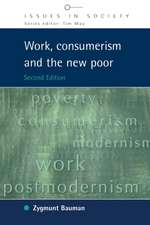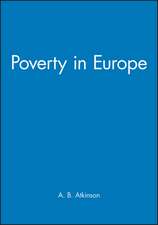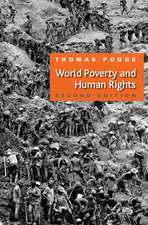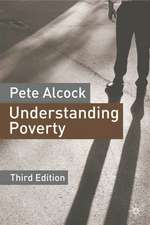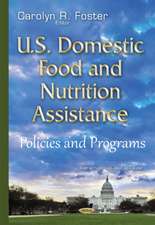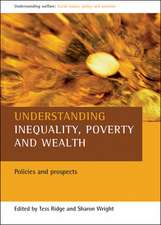Poverty Reduction - An Effective Means of Population Control: Theory, Evidence and Policy
Autor Mohammed Sharifen Limba Engleză Hardback – 20 feb 2007
Preț: 497.78 lei
Preț vechi: 666.11 lei
-25% Nou
Puncte Express: 747
Preț estimativ în valută:
95.26€ • 98.89$ • 79.43£
95.26€ • 98.89$ • 79.43£
Carte tipărită la comandă
Livrare economică 22 martie-05 aprilie
Preluare comenzi: 021 569.72.76
Specificații
ISBN-13: 9780754647287
ISBN-10: 0754647285
Pagini: 184
Dimensiuni: 156 x 234 mm
Greutate: 0.5 kg
Ediția:1
Editura: Taylor & Francis
Colecția Routledge
Locul publicării:Oxford, United Kingdom
ISBN-10: 0754647285
Pagini: 184
Dimensiuni: 156 x 234 mm
Greutate: 0.5 kg
Ediția:1
Editura: Taylor & Francis
Colecția Routledge
Locul publicării:Oxford, United Kingdom
Notă biografică
Mohammed Sharif is Professor of Economics at the University of Rhode Island, USA. He specializes in Development Economics with special focus on poverty, subsistence, inequity, and fertility in developing countries. He has published in a wide range of journals including Kyklos and Cambridge Journal of Economics and has presented results of his research in the World Congress of the Econometric Society and the Annual Meetings of the American Economic Association. His book on Work Behavior of the World's Poor - Theory, Evidence, and Policy, also published by Ashgate, has received a laudatory review by the Journal of Economic Literature.
Recenzii
'Essential reading for those with an interest in the issue of population and development. The book offers an interesting blend of analytical and empirical insights in modelling fertility and poverty, and drawing policy implications.' Dr Sushanta Mallick, Queen Mary, University of London, UK 'The book makes a seminal contribution to foster better understanding on the dynamics of the relationship between population and development and will constitute an important reference for academics, researchers and students interested in the subject.' Rafiqul Huda Chaudhury, Tribhuvan University, Kathmandu, Nepal 'Explores the relationship between poverty and high fertility and the ways in which reducing one will affect the other.' Journal of Economic Literature
Cuprins
Chapter 1 Population Control Policy – Problems of Assumptions; Chapter 2 Population Control Policy and Working Poor Behavior - An Analysis of Incompatibility; Chapter 3 Irrational Fertility Behavior Hypothesis – An Empirical Examination, 1998–2000 Data; Chapter 4 Irrational Fertility Behavior Hypothesis – Further Examination, 2001–2005 Data; Chapter 5 Child Participation, Nature of Work, and Fertility Demand Demand - A Theoretical Analysis; Chapter 6 The Observed Landholding-Fertility Relationship - Is it Monotonic?; Chapter 7 Poverty and Fertility – Evidence and Policy Implications, 1998–2000 Data; Chapter 8 Poverty and Fertility – Further Evidence, 2001–2005 Data; Chapter 9 Poverty Eradication Policies; Chapter 10 Concluding Remarks;
Descriere
The objective of this book is to drive home the fact that it is poverty that is responsible for high fertility and that until the problem of poverty is effectively dealt with the problem of high fertility will continue to persist. This suggests that reducing poverty will generate much better results in regulating fertility and controlling overpopulation.
